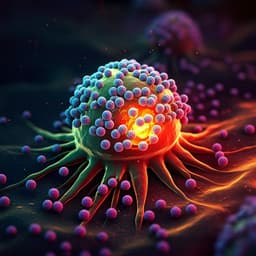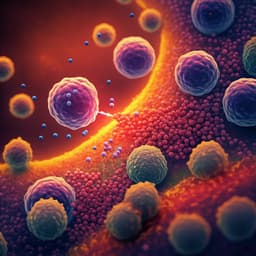
Chemistry
Chemical generation of checkpoint inhibitory T cell engagers for the treatment of cancer
P. A. Szijj, M. A. Gray, et al.
Discover groundbreaking research from Peter A. Szijj, Melissa A. Gray, Mikaela K. Ribi, Calise Bahou, João C. F. Nogueira, Carolyn R. Bertozzi, and Vijay Chudasama, highlighting a cutting-edge chemical method for creating biotin-functionalized checkpoint inhibitory T cell engagers (CiTEs). This innovative approach enhances T cell-mediated cancer cell death more effectively than traditional methods, offering rapid and flexible solutions for multi-protein constructs.
~3 min • Beginner • English
Related Publications
Explore these studies to deepen your understanding of the subject.







